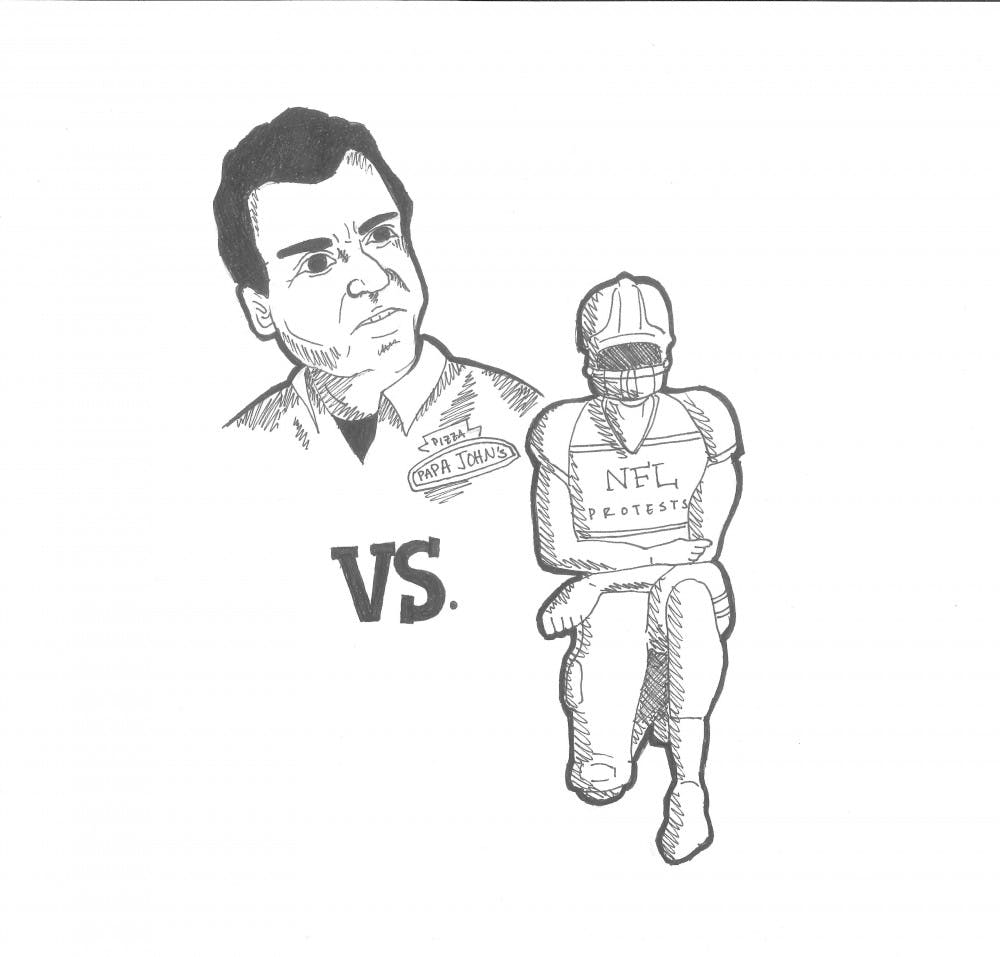Whether we admit it or not, social media occupies a central role in people's lives. News organizations use social media platforms to disseminate information, brands use them to appeal to wider audiences; therefore, we as consumers have access to a new level of direct interaction with these brands.
Social media also allows these corporations to have public conversations with each other. And because it seems no one and nothing can exist apolitically, some brands use political social media effectively while others fall flat.
In the case of Papa John’s, competitors attempted to use for their own gain founder and CEO John Schnatter’s remarks about a recent decline in sales. Schnatter claimed players’ protests in the NFL, which Papa John’s sponsors, have harmed the pizza chain’s business.
Schnatter attributed responsibility to NFL Commissioner Roger Goodell by saying, “Leadership starts at the top, and this is an example of poor leadership.” About the protesting, he added, “This should have been nipped in the bud a year and a half ago.”
Though Schnatter does not specifically indict the players or the message their protest sends – which, to be clear, is unquestionably a criticism of racial injustice – he did donate $1,000 to the Trump campaign.
Additionally, the wording of his statement expresses impatience with and insensitivity to the protests and is hardly sympathetic to their legitimate cause.
Daily Stormer, a white supremacist, neo-Nazi news commentary site, even called Papa John’s the “official pizza of the alt-right.”
Though Peter Collins, Papa John’s Senior Director of Public Relations, condemned such hate groups and said the company does “not want these individuals or groups to buy our pizza,” competitors like DiGiorno saw an opportunity to assert their brand.
In a series of tweets emphasizing the comparative success of their sales and promising “Better Pizza. Better Sales.” as a riff on the Papa John’s slogan, DiGiorno made good use of the kinds of direct attacks and low-brow pettiness Twitter facilitates.
This strategy, though entertaining, might not actually produce any long-term benefit.
As much as the internet allows for unprecedented casual and seemingly personalized interactions between corporations, the speed at which the public’s attention shifts often minimizes the effects of tweets like DiGiorno’s.
So what’s the point? Why use Twitter for marketing ploys if no one will care what happened within a week?
Think of the so-called “rap battle” between Wendy’s, whose Twitter account has acquired a reputation for performative millennial humor, and Wingstop. Did either brand’s bars really influence your fast food consumption?
While the Editorial Board would like to make clear its criticism of Schnatter’s remarks, which are probably unfounded and definitely off-color, we also believe they are likely mild enough to fade into the forgiving ether, thanks to the internet’s microscopic attention span.
The key is to choose a moment of appropriate significance and to match the punch your tweet packs with the severity of the circumstance. While DiGiorno hits the right register, the situation on which it comments is simply not momentous enough to galvanize a lasting shift among consumers.




